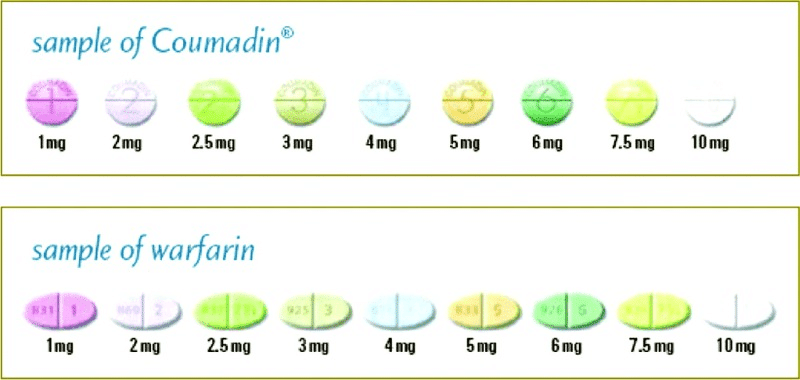Key Takeaways
-
Be cautious when taking vitamin K supplements or consuming dietary phylloquinone if you are on anticoagulants like Warfarin/Coumadin. Consult your healthcare provider for appropriate doses of medicine to avoid interference with the anticonvulsant therapy’s effectiveness.
-
Antibiotics can disrupt the gut flora, affecting the absorption of vitamin K. To support gut health during and after antibiotic treatment, consider incorporating fermented foods or probiotics.
-
If you are taking bile acid sequestrants, be aware that they may interfere with the absorption of fat-soluble vitamins, including vitamin K. Discuss potential supplementation or dietary adjustments with your healthcare provider to keep vitamin K interactions under control.
-
Orlistat (Xenical, Alli) and other weight loss drugs can reduce the absorption of fat-soluble vitamins, including vitamin K. It’s essential to monitor your nutrient levels and consider supplementation under healthcare provider guidance.
-
Anticonvulsants like Phenytoin and Phenobarbital may increase the breakdown of vitamin K in the body, potentially leading to lower levels. Regular monitoring and potential supplementation may be necessary.
-
Patients on cholesterol-lowering medications (Statins) should ensure a balanced intake of vitamin K-rich foods and dietary supplements to maintain optimal levels, as these medications may impact vitamin K metabolism.
1. Anticoagulants (Warfarin/Coumadin)

Warfarin, commonly known as Coumadin, interacts with vitamin K, a crucial component in the blood coagulation. This interaction can significantly impact the anticoagulant effect of warfarin therapy, leading to excessive anticoagulation and bleeding. Patients undergoing warfarin treatment must maintain consistent levels of vitamin K intake and supplementation to stabilize the medication’s effectiveness in preventing excessive blood clotting.
Sudden changes in vitamin K consumption and supplementation can lead to fluctuations in the dosage of warfarin required for proper anticoagulation. For instance, a sudden increase in vitamin K supplementation may reduce the anticoagulant effect of warfarin, potentially leading to inadequate blood clot prevention and increasing the risk of cardiovascular events.
Conversely, a sudden decrease in vitamin K intake may excessively enhance the anticoagulant effect, raising concerns about hemorrhagic complications due to reduced blood coagulation ability.
Maintaining stable plasma concentrations is vital for individuals on warfarin therapy since any significant alteration could result in insufficient or excessive anticoagulation. The delicate balance between maintaining appropriate levels of coagulation cascade and preventing bleeding episodes requires close monitoring and management by healthcare professionals and patients.
2. Antibiotics
Certain antibiotics can disrupt the balance of gut bacteria responsible for synthesizing vitamin K, leading to reduced levels in the body. Prolonged use of antibiotics poses a risk of decreasing vitamin K levels, which is crucial for blood clotting and bone health. As a result, patients undergoing long-term antibiotic treatment should be vigilant about monitoring their vitamin K levels and consider supplementation if necessary.
This interference with gut bacteria can significantly affect overall health, as vitamin K plays a vital role in preventing excessive bleeding and maintaining bone density. Therefore, healthcare providers should be mindful of potential interactions between antibiotics and vitamin K supplementation when prescribing medications to patients.
For instance, broad-spectrum antibiotics like cephalosporins and fluoroquinolones are known to be more likely to impact gut flora and subsequently affect vitamin K synthesis. This underscores the importance of informing patients about these potential interactions during antibiotic administration and anticoagulation supplementation.
Furthermore, breastfed infants whose mothers are on long-term antibiotic therapy may also be at risk of insufficient vitamin K intake through breast milk due to decreased maternal production caused by the medication’s impact on gut bacteria.
3. Bile Acid Sequestrants
Bile acid sequestrants, commonly prescribed for lowering cholesterol, can hinder the absorption of fat-soluble vitamins like vitamin K. This interference may lead to a deficiency in vitamin K levels, which can affect blood clotting and bone mineralization.
Patients taking bile acid sequestrants should consult their healthcare provider about potential vitamin K supplementation. Monitoring vitamin K levels through regular blood tests is essential to prevent deficiencies and associated health complications in patients.
In one clinical study published in the American Journal of Medicine, it was found that patients using bile acid sequestrants had significantly lower serum levels of vitamin K1 than those not on this medication. This emphasizes the importance of proactive monitoring and managing vitamin K status in patients using these medications.
A case report published in The Permanente Journal highlighted a patient who developed bleeding issues due to low vitamin K levels while being treated with cholestyramine, a type of bile acid sequestrant. This underscores the real risk posed by reduced absorption of vitamin K when taking these medications in patients.
4. Orlistat (Xenical, Alli) and Weight Loss Drugs
Orlistat and similar weight loss medications can interfere with the absorption of fat-soluble vitamins such as vitamin K, affecting patients’ nutritional intake.
Users and patients of these weight loss drugs should be mindful of the potential impact on their vitamin K levels. Patients taking these medications should consult a healthcare professional about strategies to maintain adequate vitamin K intake. This could involve dietary adjustments or supplements to ensure the body receives sufficient amounts of this essential nutrient.
Maintaining optimal vitamin K intake is especially important for bone health and blood clotting. Therefore, understanding how weight loss drugs can affect vitamin absorption is key for overall well-being while undergoing a weight management program.
5. Anticonvulsants (Phenytoin, Phenobarbital)
Anticonvulsant medications, such as Phenytoin and Phenobarbital, can accelerate the breakdown of vitamin K in patients. This increased vitamin K metabolism can lead to a deficiency in this essential nutrient, bone. Therefore, patients undergoing anticonvulsant therapy should ensure adequate vitamin K intake to counteract its rapid depletion.
Regular monitoring of vitamin K levels is crucial for patients taking anticonvulsant drugs. This monitoring helps healthcare providers assess whether additional supplementation or adjustments to medication dosages are necessary to maintain optimal vitamin K levels in the body.
Moreover, research has shown that infants receiving intraventricular hemorrhage prophylaxis with phenobarbital are at a higher risk for developing vitamin K deficiency. This underscores the importance of closely managing nutrition and supplementing vitamin K intake in vulnerable patient populations.
6. Cholesterol-lowering medications (Statins)
Some statins may affect liver function, potentially impacting the synthesis of clotting factors dependent on vitamin K. This can lead to unstable vitamin K levels in the body, affecting blood clotting mechanisms.
Patients using statins should be vigilant about their vitamin K intake and communicate any concerns with their healthcare provider. Regular monitoring of vitamin K levels may be necessary for those on cholesterol-lowering medications to reduce the risk of calcification.
Maintaining stable vitamin K levels is crucial for individuals taking statins as it directly impacts blood coagulation processes. Fluctuations in vitamin intake and calcification levels could pose potential risks for patients on cholesterol-lowering medications.
7. Vitamin K-Rich Foods

Green leafy vegetables like kale and spinach are excellent sources of dietary vitamin K, providing ample phylloquinone, the primary form of vitamin K1 found in foods. In addition to these vegetables, incorporating other vitamin K-rich foods such as broccoli and Brussels sprouts into your diet can help maintain optimal levels of this essential nutrient.
Consuming various foods is crucial for meeting the body’s daily requirement for vitamin K intake, which plays a vital role in blood clotting and bone health. For instance, just one cup of raw kale contains over 500 micrograms (mcg) of vitamin K1, surpassing the recommended daily intake for adults set by the National Academy of Medicine at 120 mcg for men and 90 mcg for women.
Moreover, individuals seeking to enhance their dietary intake can include fermented foods like natto (fermented soybeans) or certain cheeses that contain menaquinones – another form of vitamin K known as vitamin K2. These food products offer an additional source of vitamins beyond leafy greens and vegetable oils.
8. Herbal Supplements: St. John’s Wort, Ginkgo Biloba
St. John’s Wort and Ginkgo Biloba can affect the metabolism of certain medications, potentially impacting vitamin K levels in the body. This interference may lead to a decrease in the effectiveness of vitamin K-dependent processes.
It is crucial for individuals using herbal supplements to exercise caution due to their potential interactions with vitamin K-dependent processes in the body. Consulting a healthcare professional before combining herbal supplements with medications is highly recommended to avoid adverse effects on vitamin K.
For example, St. John’s Wort has been associated with reducing blood levels of warfarin, an anticoagulant medication that works by utilizing vitamin K-dependent clotting factors. This interaction could compromise the efficacy of warfarin treatment and impact overall health.
Similarly, Ginkgo Biloba has been found to interfere with platelet-activating factor (PAF), which plays a role in blood coagulation and inflammation – both processes influenced by vitamin K.
9. Vitamin E and Other Antioxidants
Vitamin E and other antioxidants, while essential for overall health, do not directly impact the metabolism of vitamin K. These compounds play a crucial role in protecting cells from oxidative damage but do not have a direct interaction with vitamin K-dependent processes in the body.
While maintaining adequate levels of vitamin E and other antioxidants is important for general well-being, their influence on vitamin K absorption or utilization is minimal.
Conditions such as celiac disease and cystic fibrosis can hinder the absorption of fat-soluble vitamins like vitamin K, putting individuals at risk for deficiencies. Individuals affected by fat malabsorption issues may require specialized monitoring and supplementation to address potential deficiencies in this essential nutrient.
Managing conditions related to fat malabsorption effectively is critical for ensuring that individuals maintain sufficient levels of vital nutrients like vitamin K. Without proper management, these individuals are at an increased risk of developing deficiencies that could lead to various health complications.
10. Fat Malabsorption Issues (Celiac, Cystic Fibrosis)
Fat malabsorption disorders like celiac disease and cystic fibrosis can significantly impact vitamin K absorption in the body. These conditions affect the digestive system’s ability to absorb dietary fats, leading to potential deficiencies in fat-soluble vitamins such as vitamin K.
Individuals with these malabsorption issues may experience problems maintaining adequate vitamin K levels, which is crucial for blood clotting and bone health. A deficiency in this vitamin could heighten the risk of uncontrolled bleeding and impaired bone mineralization.
Patients with cystic fibrosis often face challenges related to pancreatic insufficiency, which can further exacerbate their ability to absorb essential nutrients, including vitamin K. Similarly, individuals with celiac disease may struggle with nutrient absorption due to damage in the small intestine caused by gluten consumption.
It’s important for healthcare professionals to closely monitor individuals with fat malabsorption disorders for potential vitamin K deficiencies and provide appropriate interventions or supplementation when necessary. Patients should work collaboratively with their healthcare team to address absorption issues and ensure optimal vitamin K status.
Frequently Asked Questions
What are the potential interactions between Vitamin K and anticoagulants (Warfarin/Coumadin)?
Vitamin K can counteract the effects of anticoagulants, so it’s crucial to maintain a consistent intake of vitamin K-rich foods. Consult your healthcare provider for personalized guidance.
Are there any interactions between Vitamin K and antibiotics?
Certain antibiotics may affect vitamin K levels in the body, potentially impacting blood clotting. Discussing this with your healthcare provider if you’re taking both is advisable.
How do Bile Acid Sequestrants interact with Vitamin K?
Bile acid sequestrants could reduce the absorption of fat-soluble vitamins like vitamin K. If you use these medications regularly, consult your healthcare provider about potential supplementation needs.
Can Orlistat (Xenical, Alli) and Weight Loss Drugs impact Vitamin K levels?
Orlistat and similar weight loss drugs might interfere with the absorption of fat-soluble vitamins such as vitamin K. Discuss any concerns about nutrient absorption with your healthcare provider.
Do Anticonvulsants (Phenytoin, Phenobarbital) have interactions with Vitamin K?
Anticonvulsant medications can affect vitamin K metabolism in the body. Working closely with your healthcare provider to monitor and manage any potential impacts on vitamin levels is essential.

